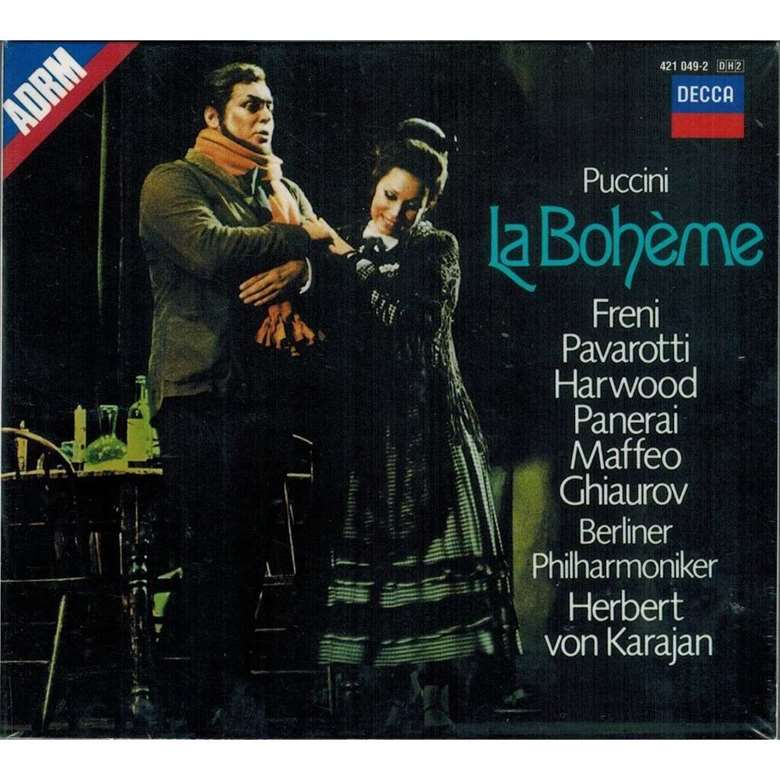The soprano Mirella Freni has died
Monday, February 10, 2020
Born February 27, 1935; died February 7, 2020

One of Herbert von Karajan’s favourite singers, the Italian soprano Mirella Freni, has died aged 84. Like her almost exact contemporary and frequent musical partner, Luciano Pavarotti (1935-2007), she was born in Modena (where she also died). At the age of 12 she appeared in a singing competition, tackling Puccini’s ‘Un bel dì’; she won but was advised by one of the judges, the great tenor Beniamino Gigli to take things slowly – and she heeded his advice throughout her long career.
She made her operatic debut in her home town as Micaëla in Bizet’s Carmen, a role she would become closely associated with both on stage and record (she recorded the part twice for Karajan, as well as for Ozawa and Frühbeck de Burgos). She made her Glyndebourne debut in 1960 and over the next three seasons appeared there as Susanna (Le nozze di Figaro) and Zerlina (Don Giovanni). Initially she stayed with lighter soprano roles like Adina (L’elisir d’amore) and Nanetta (Falstaff), the part with which she made her Covent Garden (1961) and La Scala (1963) debuts. In 1965 she appeared for the first time at the Met, as Mimí, returning to sing Liù (Turandot), Marguerite (Faust) and Juliette (Roméo et Juliette).
In the 1970s she took on heavier roles like Elisabetta in Don Carlo, Desdemona (Otello), Ameila (Simon Boccanegra), Leonora (La forza del destino) and Aida. It was during this time that she started to collaborate with Karajan, both on stage and on record. She also started to add more Puccini roles like Manon Lescaut, Tosca, Madama Butterfly (which she never sang on stage) and the soprano roles in Il trittico; with Karajan she recorded Butterfly twice (once for Decca and also for a film opposite Christa Ludwig and Plácido Domingo, directed by Jean-Pierre Ponnelle) and Mimí (opposite Pavarotti). She apparently declined Karajan’s invitation to sing Leonora (Il trovatore) and the title-role in Turandot. She took on more verismo roles, including Giordano’s Fedora and Caterina Hubscher (Madame Sans-Gêne) and Cilea’s Adriana Lecouvreur.
In 1978, she married the Bulgarian bass Nicolai Ghiaurov (her first marriage to the pianist and conductor Leone Magiera ended on divorce), and, encouraged by him, started to sing some Tchaikovsky roles: Tatyana (Eugene Onegin – which she recorded for DG with James Levine conducting), Lisa (The Queen of Spades – recorded for RCA with Ozawa conducting) and Ioanna (The Maid of Orleans), the last part she sang on stage (April 2005).
She recorded extensively for EMI, RCA, Decca, Philips and DG – among the highlights of her catalogue are Simon Boccanegra (Abbado/DG), Otello (Karajan/EMI), Madama Butterfly and La bohème (Karajan/Decca and Thomas Schippers/EMI), Manon Lescaut (Sinopoli/DG), Gounod’s Mireille (Plasson/EMI), Don Giovanni (Klemperer/EMI), Falstaff (Solti/Decca), L’amico Fritz (opposite Pavarotti with Gianandrea Gavazenni conducting/EMI) and Don Pasquale (Muti/EMI). She recorded many recital albums including a verismo collection for Decca with Roberto Abbado conducting, as well as the Verdi Requiem with Karajan/DG (with Ghiaurov taking the bass part). Reviewing the Verdi Requiem in January 1973, Trevor Harvey wrote: 'With Mirella Freni, Karajan has a winner, a "natural" for this part, and she sings superbly all through. She can dominate the ensemble at its loudest; at the end of the unaccompanied "Requiem" she can pitch the last pppp top B flat (for that is how Verdi marked it) like an angel.'
Among her many honours were Italy’s Cavaliere di Gran Croce and France’s Légion d’honneur, and Gramophone presented her with our Lifetime Achievement Award in 2002 when she joined the LSO and Sir Colin Davis at the Barbican ceremony to sing ‘Dio pietoso’ from Alfano’s Risurrezione.







